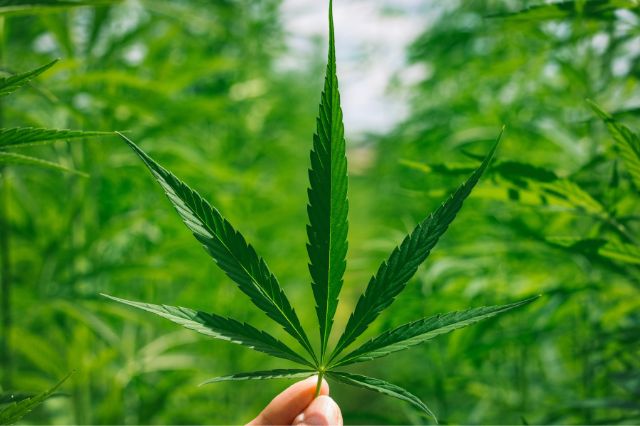How the Legalization of Marijuana Could Impact Your State

Here we will go over how the legalization of marijuana could impact your state.
Over the last few years, the legalization of medical marijuana has been spreading throughout the states.
As with any new law, the legalization of marijuana creates a butterfly effect of positive and negative changes for the state.
Keep reading to learn about these changes and how your state might be affected.
Better Health
Marijuana has proven to be an effective treatment option for various health conditions such as Crohn’s disease, epilepsy, cancer, glaucoma, Parkinson’s disease, and multiple sclerosis.
The plant is a natural anti-inflammatory, pain reliever, anti-fungal, and more.
Additionally, when individuals begin smoking marijuana, their endocannabinoid system is activated. The endocannabinoid system is responsible for the homeostasis of our body. After a few weeks of consuming marijuana regularly, all major organs and internal systems start balancing themselves, and bodily functions are regulated.
Studies show that when a state legalizes marijuana, the population as a whole becomes healthier. For example, in the year since Iowa legalized medical marijuana, health statistics have already shown a %7 improvement (here you can apply for an Iowa medical marijuana card.)
Lower Suicide Rate
In addition to the physical health benefits of marijuana, there are many mental health benefits.
Marijuana can treat or relieve symptoms of anxiety, depression, PTSD, and psychosis.
When an individual battling a health condition adds marijuana to their daily routine, their mood improves.
Researchers studied the link between marijuana legalization and suicide rates. The findings were that when a state legalizes marijuana, suicide rates decrease, and suicidal ideation is reported less often. These decreases are exceptionally large in the age groups that are more likely to consume marijuana (20-39).
Positive Change in The Black Market
When marijuana is legalized, illegal street sales decrease. In many legal states, the black market sale of marijuana has been almost wiped out entirely. This change in the black market has some positive impacts on the state but also some negatives.
The positive changes are that marijuana is no longer purchased from potentially dangerous sources. Marijuana purchased from the black market has the potential to be dangerous as well.
Dispensaries source their products from marijuana farms required to follow strict cultivation guidelines. These sources monitor their plants closely to ensure plants are not contaminated by heavy metals, harmful insects, pesticides, mold, or mildew.
Black market marijuana farms are generally not as concerned with the health risks as they are with profit which means that their marijuana may have contaminants. Although rare, black-market marijuana has been found to be laced with cheaper drugs to provide the illusion it is more potent.
Negative Black Market Changes
With the positive impacts on the black market come many negatives that must be considered.
Unfortunately, the black market will never cease to exist, and when marijuana sales are eliminated due to legalization, the black market must find income from other sources.
The black market makes up for their income loss by pushing other drugs into the community. These drugs are categorically more harmful and include substances such as methamphetamine, cocaine, heroin, and oxycodone. These substances are highly addictive and can lead to overdose, organ failure, crime, and homelessness.
Additionally, since states have begun legalizing marijuana, there has been an increase in human trafficking. Law enforcement believes there may be a link between marijuana legalization and this increase in human trafficking.
Economy Growth
When marijuana is legalized, the local economy sees major improvements.
Each time a state legalizes marijuana, hundreds or thousands of jobs are created in a wide variety of fields. The marijuana industry employs dispensary staff, manufacturers, cultivators, transportation, researchers, and more.
Legalization also has a large impact on how law enforcement’s funds are allocated. When law enforcement spends less time arresting marijuana consumers, they can spend their time, money, and resources on serious crimes.
The addition of marijuana sales and new employees also generates quite a bit of money in taxes. The majority of these taxes go directly back into the safety and upkeep of your city or state.
Conclusion
When marijuana is legalized, your state may be impacted in various ways.
Individuals may see improvements in community health and a decrease in suicide.
The marijuana black market will significantly decrease, but the black market sale of other drugs may increase.
Lastly, your local economy will improve by providing new jobs and more tax revenue for your city.





